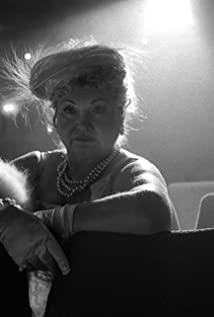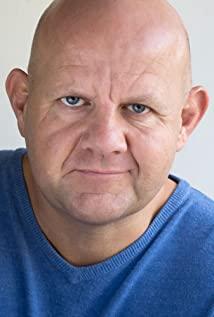TT:
I told you about "Warrior" in my letter last month. Because I like Tom Hardy, I went to look through his movie list and saw a movie called "Stewart Down". Bring Life" movie. The title is weird, right? At first glance, it is very unpopular and very uncommercial, but this film actually brings together two handsome guys, Tom Hardy and Benedict Cumberbatch! Unexpectedly, the two of them have had such a wonderful collaboration in a literary film. Of course, in this movie, neither of them can be said to be handsome. Tom Hardy can ruin himself as he can... But
this is really a one. good movie. That is, you originally went for the handsome guy, but later, the role he played moved you, and later, this movie made people moving, confused, sober, and painful. It talks about the other side of society-the anti-social side. But it is not talked about in the tone of bitterness and hatred, nor is it talked about by violent and thrilling methods. It strives to be "relaxed", using a documentary method to enter the life of a nomad from the perspective of daily life. With pity and curiosity (of course, try to hide curiosity as much as possible, curiosity about the pain of others is immoral). Slowly, the words came out. The past has been presented. Thus, a "street wanderer, alcoholic, addict, anti-socialist, street minstrel", his focused and empty eyes, his slow and vague accent, the way he walks stumblingly, all of this After being rendered vividly by Tom Hardy, the wounds in each life were uncovered again. Which wound is fatal? This is a cruel question.
In the movie, Alexander, played by Benedict Cumbersome, and Stewart, played by Tom Hardy, are two different classes of people. Alexander came from a family of middle-class intellectuals. He went to work in the Winter Rest House. Because he was paid 9 pounds an hour and took a shift, he could have free time to work on writing. Why write? Because the whole family writes. Alexander's temperament is clean, with understanding and imagination, and a good sense of balance. There is a subtle indifference in him, which is a common problem of the intellectuals. Thinking about the past, Alexander has plenty of writing skills, but he lacks good writing subjects. Because his circle is too middle-class, too intellectual, too well-trained, and too little pain. When he grasped the subject of Stewart, did he have the excitement of Capo's writing "Cold Blood"? But Capote is a naked one-time use of the subject matter, while Alexander has a kind of British restraint and calmness. Moreover, his writing is linked to his actions. He initiated a protest against the imprisonment of the manager of the Winter Rest House, and accompanied Stewart to the trial. He entered his subject and became friends with his subject, which is very important.
Stewart said his father was a thief and his mother was a bartender. When he was young, his father abused his mother and later disappeared. This is a low-level, marginal social group. Some people (possibly more capable women) try to maintain a normal state of life, such as mothers, sisters, others, fathers, brothers, Stewart, they are like violent batons, hurting others and destroying themselves. Stewart was sexually assaulted by his brother and his friends at the age of nine, was sexually assaulted by the principal when he entered a child welfare school, entered the juvenile school, and went to jail. When he was 33, he was already scarred and crumbling. ——The movie uses flashbacks to review his life. The last time he went to jail? Imprisoned for the first time? What family, wife and children did he have? He is 12 years old? He is 9 years old? It goes back to when he was a baby. Have a picture with my brother. Two pure and lovely children. When they grew up, his brother committed suicide, and Stewart might also commit suicide.
TT, when the film advances the lens to the injuries that Stewart suffered in childhood, generally speaking, the logic ends here. The dirtiest injury suffered in the weakest childhood makes people shudder at the darkest side of man, and can't help but give the deepest sympathy to Stewart. However, sympathy is useless, and feeling humanity and destiny is useless. Demons hovered and flew above humans. Some people were fortunately not targeted, some unfortunately became victims, and some let demons settle in their hearts. Stewart's brother, is he the one who allows demons to settle in his heart? He is the source of Stewart's misfortune, right? If life can be repeated, is there another possibility without this brother? However, Stewart has a peculiar forgiveness of his brother. "If something is decisive," he said, "it was the day I discovered violence." A child has only fear in his heart, and can only bear the cruel damage that falls on him. But one day, fear turned into unbearable anger, and together with anger was the feeling that irreparable life was wasted.
One day from childhood to adolescence, Stewart learned about the violent energy when he slammed his head on two children who bullied him. Fury became an emotional state for him, a state that could bring storm-like power. But this fury is beyond his control. When he was awake, Stewart was able to face his heart more soberly than normal people. He had a moving sadness without complaining. He said that some people also had his experience, but then he still lived decently. A normal and meaningful life. And he also let the devil settle in his heart, he didn't know when his irregular violent state would come.
"I let him live in my heart and I can't get rid of him anymore. I want to burn him out and cut it off. He just smiled and said,'No, no, I won't go.'" He smiled and said: " Why is he leaving? He doesn't want to be homeless either."
TT, this is the monologue that made me cry most in a movie about childhood shadows and adult violence. At this moment, Stewart almost has the breath of a saint. It didn't take long. Stewart is dead. He was hit and killed by a train, and he did not know if he committed suicide. The voice on the tape is still so vague: "All I want is to lie down and die. I feel so filthy and horrible. I hate and attack everyone who comes close to me. I just hope, even once. It’s good to be able to escape this madness."
Vagrant Stewart actually has some very "orthodox" ideas about life: he wants to make a lot of money, he wants his son to go to business school, and he happily drives a lawn mower when he visits a middle-class friend in Alexandria. Human beings have become a crowd and a society, and then the structure is formed and the class is divided. Then, some people were thrown out of this structure. They become the backside existence in this society. Although this society can't be considered too bad, give him a residence and give him free treatment, but he knows that he can't return to that "society" anymore? Because he knew that his body and heart were destroyed?
TT, after watching "Stewart: Rewinding Life", when I recalled "Warrior", I felt that "Warrior", as a mainstream commercial film, would always leave the greatest possibility for family love and return. It can be said that it is a narrative strategy, a kind of catering to the audience's psychology, but sometimes, this kind of warmth of mainstream movies and the cruelty of art movies are also complementary to each other.
Seventy seven.
June.
View more about Stuart: A Life Backwards reviews











